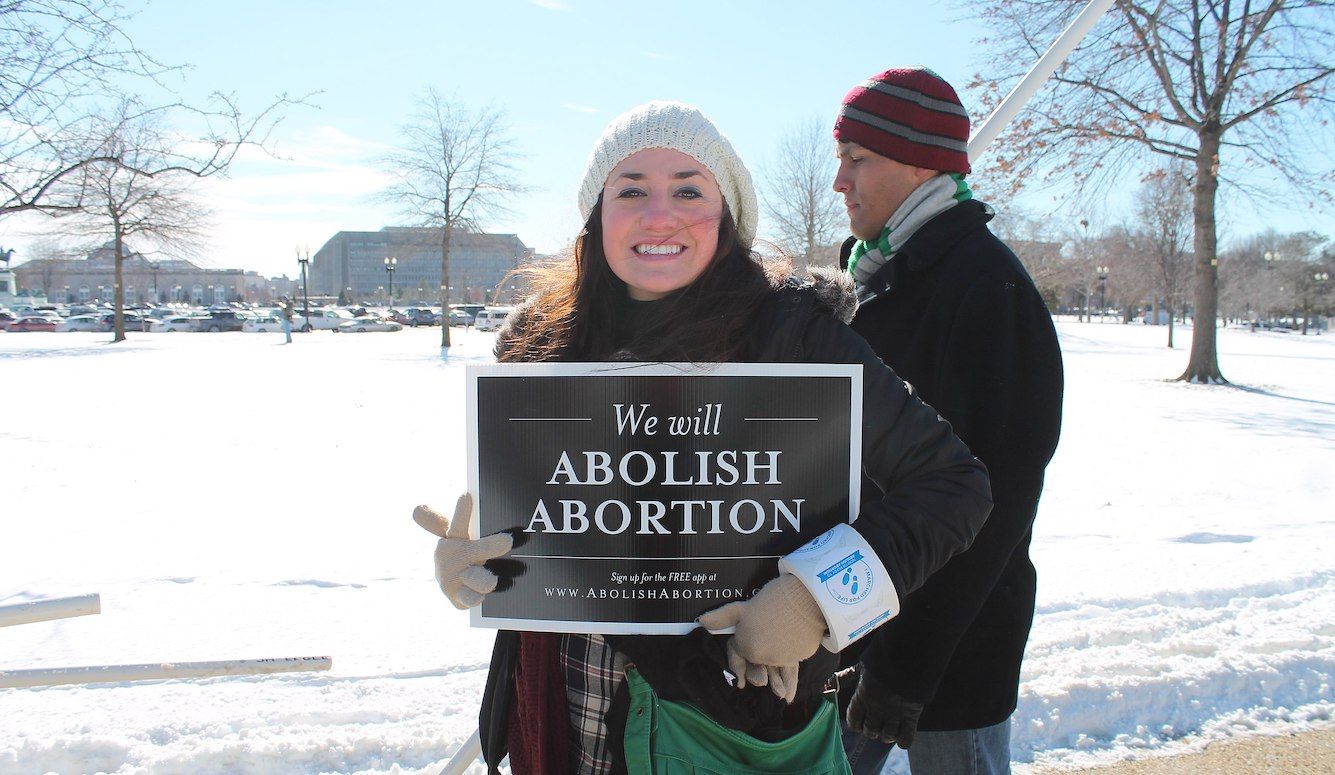Abortion
Imagining What a (Real) ‘Pro-Life’ Agenda Would Look Like
Now is the time for a pro-life approach to be mobilized in defense of all human life, not just zygotes, blastocysts, embryos, and fetuses.

Since the United States Supreme Court decided Roe v. Wade in 1973, abortion opponents campaigned to have the landmark decision overturned. In the recently decided case of Dobbs v. Jackson Women’s Health Organization, that objective was finally realized. So what will become of the pro-life political movement now that its supporters have achieved their principal objective?
Our view is that American social conservatives should revisit the humanitarian ideal they’ve long presented as their moral dynamo, and which has been encoded in the “pro-life” ideological brand for the last five decades. Now is the time for a pro-life approach to be mobilized in defense of all human life, not just zygotes, blastocysts, embryos, and fetuses.
A post-Dobbs pro-life movement, for instance, should target America’s appallingly high infant-mortality rate, fourth worst among OECD nations. Within the United States, the highest mortality rates are clustered in deeply conservative states such as Louisiana, West Virginia, Arkansas, and Alabama. When Mississippi’s then-governor signed the Gestational Age Act, the law upheld by the Supreme Court in Dobbs, he declared that it reflected a “commit[ment] to making Mississippi the safest place in America for an unborn child.” Yet this is the same state where about one in every 120 children never makes it to a first birthday, the worst mortality rate in the entire nation. Almost 300 babies died in Mississippi in 2020 (the most recent year for which data is available), roughly triple the number that would be expected if the state had an infant mortality rate on par with Hungary, Lithuania, Portugal, or Greece. None of these countries are wealthier than the United States. But all have more enlightened social and health policies.

Infant mortality is linked to poor health status among mothers before pregnancy, and sub-standard hospital care. Roughly one in six women in Mississippi (and about six percent of children in that state) have no health insurance. Mississippi ranks highest in the United States in the share of births to unmarried mothers, preterm birth rate, and low birthweight, all factors that are associated with negative pediatric health outcomes. Can we imagine an alternate universe in which self-described pro-life voters in Mississippi and other red states cared as much about these children and mothers as they do about the unborn?
As in the United States more broadly, many mothers in Mississippi are forced to return to work just a few weeks after delivering a child, due to America’s scandalous lack of nationally mandated paid maternity leave. Given what we know about the benefits of breastfeeding, this has obvious implications for child health outcomes. Every other OECD country offers paid leave that extends for at least 12 weeks. In the United States, by contrast, only 21 percent of workers enjoy such benefits. A 2012 analysis found that almost a quarter of employed American mothers return to work within 10 days of giving birth.

Americans aged 15 to 25 are twice as likely to die as peers in other wealthy nations, in large part thanks to high rates of gun-related suicides and homicides. Gun violence—not car accidents, drug overdoses, drowning, or any disease—has become the leading cause of death for Americans under age 19. In 2020 and 2021, there were 93 mass shootings in the United States, 50 of which involved injuries at schools. In Texas, another state set to ban most abortions, 19 elementary-school students were killed in May by a shooter who didn’t have to undergo substantial vetting before purchasing his murder weapon (along with 375 rounds of ammunition). Some of his victims had tissue damage so severe that they could be definitively identified only by DNA analysis.
As Michael Shermer noted recently in Quillette, the most compelling explanation for America’s gun-violence epidemic is also the most obvious: guns are plentiful and easy to procure. In Mississippi, residents aren’t required to obtain a permit before carrying concealed handguns in public. Nor are they required to pass a criminal background check before buying guns from unlicensed sellers. About 700 people die from guns in that state every year. That’s roughly the same number as in all of Canada, a nation whose population is more than 10 times that of Mississippi. Data such as this makes it hard to avoid the suspicion that the life-affirming fervor of red-state conservatives is unsettlingly selective.

Much has been made of the fact that Dobbs represents a turning point for the pro-choice movement in the United States, as progressive activists must now pivot from protecting Roe to defeating pro-life legislators and governors at the ballot box. But this juncture is equally critical for the pro-life movement: Its victorious cadres now find themselves with unused funds, manpower, and influence—the political equivalent of war-surplus materials—that may now be redeployed in furtherance of other causes.
The term “pro-life,” it is worth remembering, was popularized in the 1970s by Catholic bishops who cast their movement as inspired by the “seamless garment of life”—analogized to Jesus’ robe, described in John 19:23 as “woven in one piece from top to bottom.” By this metaphor, the robe woven by American conservative policymakers is unconscionably tattered. Mending it will require that those who’ve spent years loudly championing the sacredness of human life now make good on their professed convictions.





